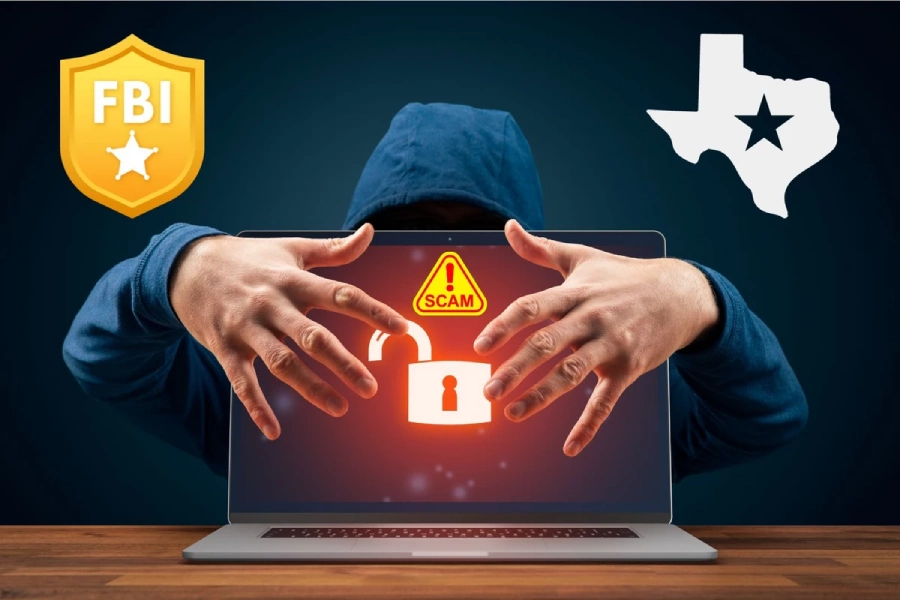Is your bank account truly safe? The Phantom Hacker scam has emerged as one of the most sophisticated financial threats for seniors, using AI and impersonation to steal life savings and retirement funds. Since 2024, this scam has reportedly stolen over $1 billion from older Americans. This article explains the three-phase scam, legal considerations, and actionable tips to safeguard your bank accounts from cybercriminals.

What Is the Phantom Hacker Bank Scam?
The Phantom Hacker scam is a three-phase attack designed to trick victims into giving scammers access to their bank accounts, savings, or retirement funds. Cybersecurity experts warn that the scam is highly personalized, often exploiting victims’ hobbies and social media activity to gain trust.
Phase 1: Tech Support Impersonation
Scammers pose as tech support representatives from legitimate companies. They contact victims via phone, email, or pop-ups and instruct them to install remote access software. Once the scammer has access, they direct the victim to open financial accounts, claiming they need to check for “unauthorized charges.”
Phase 2: Bank or Financial Institution Impersonation
Next, the scammer pretends to be an employee of the victim’s bank. They claim the account has been hacked by foreign criminals and urge the victim to transfer funds to a “safe third-party account,” which may involve wire transfers, cash, or cryptocurrency.
Phase 3: Government Impersonation
To make the scam appear official, scammers may pose as Federal Reserve employees or other government officials. They sometimes send letters on fake government letterhead to convince the victim that their money remains at risk.

Legal Implications of Bank Scams
Bank scams like Phantom Hacker attacks carry serious legal and financial consequences for both the perpetrators and victims.
-
For perpetrators: Federal laws, including wire fraud (18 U.S.C. § 1343) and identity theft statutes (18 U.S.C. § 1028), allow for heavy fines and prison sentences. Using AI and impersonation to commit fraud can lead to enhanced penalties under cybercrime statutes.
-
For victims: While the scam is criminal, banks may be limited in recovering funds if victims voluntarily transferred money to fraudsters. Legal experts recommend immediately reporting incidents to the FBI and the Internet Crime Complaint Center (IC3). Victims may also explore civil remedies against financial institutions if there was negligence in protecting account security.
How to Protect Your Bank Accounts
Experts advise seniors and families to adopt multiple safety measures:
-
Never give remote access to your computer for unsolicited calls.
-
Verify bank or government communication through official channels.
-
Avoid transferring funds based on urgent instructions.
-
Discuss financial safety regularly with family or trusted advisors.
-
Monitor accounts for unusual activity using alerts and two-factor authentication.
Signs Your Bank Account Might Be Targeted
-
Unexpected calls claiming suspicious activity on your bank account.
-
Emails requesting verification of financial information.
-
Pop-ups instructing software downloads to “protect your computer.”
-
Requests to move money to unknown accounts, especially overseas or third-party.
FAQ
Q1: What is the Phantom Hacker bank scam?
A: It’s a three-phase scam targeting bank accounts and retirement savings, using tech support, bank, and government impersonation.
Q2: Who is most at risk?
A: Seniors and retirees, especially those who share personal interests publicly on social media.
Q3: How can I report a bank scam?
A: Contact your local FBI field office or file a report at tips.fbi.gov or the IC3.
Q4: Can banks recover stolen funds?
A: Recovery is difficult if the victim voluntarily transferred money. Immediate reporting improves chances but is not guaranteed.
Q5: What legal actions exist against scammers?
A: Federal charges may include wire fraud, identity theft, and cybercrime offenses, carrying potential fines and prison time.
Summary
The Phantom Hacker bank scam is a sophisticated threat that has stolen over $1 billion from seniors. Using AI and impersonation, criminals exploit tech support, financial institutions, and government identities to access victims’ funds. Immediate awareness, safe banking practices, and prompt legal reporting are critical to protecting your savings. Seniors and families must remain vigilant to prevent falling prey to this multi-phase scam.

